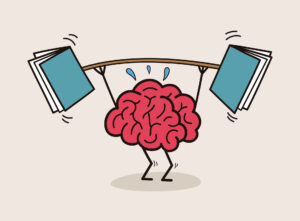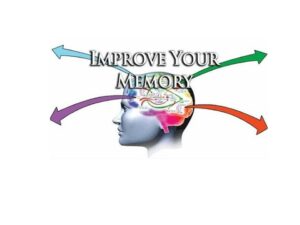As you know, the topics that I usually write about on my blog refer to problems that women face in middle age. But, what about men?
I’ve received questions from women readers about issues affecting their husbands, brothers, or just a friend at this stage in their lives. So, although I have answered the questions directly, I thought that I should write something that informs women to help their husbands, who also undergo substantial changes when they reach middle age.
This article is generally about how men should prepare for their arrival and transition through the fantastic middle age. We’ll title it:
Men at Fifty and Over.
What if we all prepared for old age the same way we do it with our finances for retirement. Something like taking a close look at where things stand now and then take steps to protect your future.
If you’ve taken risks, it is time to start reducing them. Instead, invest in things that are likely to pay dividends in the future. A healthier lifestyle can reduce your risks for multiple primary conditions that might otherwise limit your life span and undermine your independence and quality of life.
So how do you start investing wisely in your health? First, acknowledge what you can’t control. Then put your energies into changing what you can — for the better. This post will clear up some doubts about how to do it.
 What about men in midlife?
What about men in midlife?
So, how can men start investing wisely in their health? First, they need to recognize what they cannot control.
What is out of men’s hands?
It is clear to all of us that we cannot change factors, such as your age, family medical history, gender, and ethnic or racial origin. However, you can take them into account when determining your risk for certain conditions. Knowing their risks can help motivate men to make the changes they can.
Let’s talk about these non-modifiable factors.

Age. With aging, the body gradually undergoes physical changes that are normal and unavoidable. Cells, for example, can be damaged by random genetic errors that occur when cells divide, and their DNA is copied incorrectly. Although the body has many built-in repair systems, sometimes these break down, and cell damage accumulates over time.
Family history. When an immediate family member, a parent, or a sibling, develops a problem such as heart disease or cancer, it could mean that you, too, are at higher risk. For example, if your mother or father had heart disease before age 50, you have twice the usual risk of similar problems. Shared genes explain some of these risks, but so do shared lifestyles, such as the foods you eat and your activity level.
Race and ethnicity. Certain racial groups are at high risk for certain diseases. For example, the CARDIA study (Coronary Artery Risk Development in Young Adults) found that black men and women have up to twice the risk of high blood pressure at age 55 compared to whites. According to the American Heart Association, more than 40% of non-Hispanic black men (and women) have high blood pressure.
The reasons for this are not entirely clear. As with family history, part of the explanation may lie in genes, while part lies in lifestyle choices and social or economic factors.
What can men modify with direct interventions?
For example, despite all the media coverage of new genetic discoveries, the old tried-and-true combination of diet and exercise is more important in the end. There is a saying: “Genes load the gun, and lifestyle pulls the trigger.” In other words, you can avoid turning on many disease-promoting genes by adopting healthy habits. Plus, you can amplify the benefits of “good” genes with positive lifestyle choices.
These are some of the most important things to consider when thinking about making healthy changes.
 About one in six American men smokes cigarettes, pipes, or some other form of tobacco, whether or not you smoke. If any man in his circle is one of them, kicking the habit is the most important thing he can do to improve his health.
About one in six American men smokes cigarettes, pipes, or some other form of tobacco, whether or not you smoke. If any man in his circle is one of them, kicking the habit is the most important thing he can do to improve his health.
 In the case of heart disease, the gains are quick. In one year, the risk of heart disease is about half that of a smoker. The risk of lung cancer also decreases, but not as fast. It takes approximately 15 years for the risk of lung cancer to drop to the average population. It can also dramatically lower your risk of developing the chronic obstructive pulmonary disorder (COPD) or, if you already have COPD, it can help prevent it from getting worse.
In the case of heart disease, the gains are quick. In one year, the risk of heart disease is about half that of a smoker. The risk of lung cancer also decreases, but not as fast. It takes approximately 15 years for the risk of lung cancer to drop to the average population. It can also dramatically lower your risk of developing the chronic obstructive pulmonary disorder (COPD) or, if you already have COPD, it can help prevent it from getting worse.
 Keep an eye on what you eat. Consistent consumption of a healthy diet reduces the risk of multiple life-threatening diseases, such as heart disease, diabetes, and some of the most common cancers. It can also help prevent strokes, cognitive decline, kidney problems, certain gastrointestinal disorders, and various eye diseases, among other conditions. According to Dr. Walter Willett, former chair of the Department of Nutrition at Harvard T.H. Chan and leader in the field, “Aspects of diet play a role in preventing disease and dysfunction in almost every organ in the body.”
Keep an eye on what you eat. Consistent consumption of a healthy diet reduces the risk of multiple life-threatening diseases, such as heart disease, diabetes, and some of the most common cancers. It can also help prevent strokes, cognitive decline, kidney problems, certain gastrointestinal disorders, and various eye diseases, among other conditions. According to Dr. Walter Willett, former chair of the Department of Nutrition at Harvard T.H. Chan and leader in the field, “Aspects of diet play a role in preventing disease and dysfunction in almost every organ in the body.”
How much you move.
We always hear or read that staying active will help you live longer and live better. Numerous studies have linked increased physical activity to better mood, blood sugar control, lower risk of heart disease, and other benefits. And the best part is that it is never too late to start. For example, a 2019 study in the UK found that older adults who got the recommended minimum weekly exercise – even if they were relatively inactive in their younger years – still lived longer. Moreover, they showed a 24% lower risk of dying from any cause during the 12-year study period.
So, get regular exercise.
Exercise has a variety of positive influences on cognitive abilities. The first that comes to my mind is that it enriches the blood (and therefore the brain) with oxygen. During physical activity, the body produces substances that help maintain the physical integrity and function of the brain. Regular exercise also supports restful sleep, which is essential restorative “downtime” for the brain.
 And speaking of restful sleep, get enough sleep. We must understand that to learn new information; one must pay attention, which we cannot do if we have not rested well. It is also more challenging to hold on to memories and retrieve the information you have learned if you have not rested well. The process in which you solidify recent experiences into lasting memories occurs during sleep. It is no coincidence that forgetfulness is a common symptom of insomnia.
And speaking of restful sleep, get enough sleep. We must understand that to learn new information; one must pay attention, which we cannot do if we have not rested well. It is also more challenging to hold on to memories and retrieve the information you have learned if you have not rested well. The process in which you solidify recent experiences into lasting memories occurs during sleep. It is no coincidence that forgetfulness is a common symptom of insomnia.
 Manage stress. Stress can be helpful in reasonable doses to motivate you and focus your attention. But intense or prolonged pressure affects your health.
Manage stress. Stress can be helpful in reasonable doses to motivate you and focus your attention. But intense or prolonged pressure affects your health.
Long-term exposure to stress hormones can damage the brain, including the hippocampus, a critical memory region of the brain. Exercise, meditation, restful sleep, friendships, other social connections, and a positive approach to life’s challenges can help you better manage stress and optimize memory.
 Use it or lose it. Challenging the brain throughout life creates a buffer against the detrimental effects of aging in the brain. Thanks to education, work, and leisure activities, people who have led mentally active lives have a more cognitive reserve, essentially “extra brain in the bank,” to prevent or delay a decline in mental abilities. In addition, it is beneficial to challenge your brain by learning new skills, such as learning to play a musical instrument that you have not played before or studying a foreign language that is new to you.
Use it or lose it. Challenging the brain throughout life creates a buffer against the detrimental effects of aging in the brain. Thanks to education, work, and leisure activities, people who have led mentally active lives have a more cognitive reserve, essentially “extra brain in the bank,” to prevent or delay a decline in mental abilities. In addition, it is beneficial to challenge your brain by learning new skills, such as learning to play a musical instrument that you have not played before or studying a foreign language that is new to you.
 Learn memory techniques. There are many ways to make the most of your existing memory skills. Scenarios like these can help you deal with everyday situations that invite oblivion:
Learn memory techniques. There are many ways to make the most of your existing memory skills. Scenarios like these can help you deal with everyday situations that invite oblivion:
- Use notebooks, address books, calendars, and smartphone apps to organize and store information for quick retrieval rather than relying entirely on memory.
- Keep items like your wallet and car keys in designated places so you always know where to find them.
- Practice concentrating more mindfully when taking in new information, such as meeting people, to improve your memory of facts and impressions later on.
- Use memory-enhancing tricks, such as making up a fun rhyme to remember a name or place, or silently repeating new information to yourself several times, for example: “Tom’s friend Joe, Tom’s friend Joe, Tom’s friend Joe. Tom “
Anyway, as you can see, everything that I share here is perfectly applicable for you and your partner, father, or brother. From my personal experience, I learned that we transform our daily routine better if we do it in conjunction with our significant others.
To your health!










It’s hard to believe that 1 in 6 men smoke something! I really thought that number had went down. But will all the new E-cigs and stuff, I guess I can see. Those are just as bad or worse really. And yes exercise and diet do play a huge role. I also know that men do have a mid-life crisis. I have a friend who is 60. He has a Bentley, an expensive Mercedes, and just bought a Mazeratti. He’s a single guy living in a high rise expensive condo on the beach. For the life of me I can’t think why needed to buy that extra car LOL.
Hello Leahrae,
Thank you for commenting. Yes, it’s hard to believe; however, I consider this is probably underestimated, especially during the pandemic isolation. According to a CDC report, around 34 million people report that they smoke in the United States. Men were more likely to be current cigarette smokers than women, although it is not a very significant difference at 15% to 13%, respectively. Indeed, tobacco use has registered a significant reduction in recent years, but there is still much to do in this area, especially since e-cigarettes appeared. The pandemic may have affected this problem, but that remains to be seen.
I think your friend may be enjoying a very particular way of nurturing his loneliness if there is one. Maybe his hobby is collecting expensive cars, who knows? What is your Hobbie?
Hey great article! I believe men issues have to also be discussed just like women issues are discussed.
The list mentioned are the main factors which can contribute to midlife crisis for men so discussing how they effect health as well as what can be done is essential to living a healthy life for everyone.
Thanks again and I shall be using a few of these tips to share!
Hey Sariyah,
I am glad you found my article helpful and that you’ll be using some tips to share. I appreciate that you do so because many people need to understand how to cope with changes happening in midlife. As I said, I have had some of my clients asking questions about their partners going through this age crisis, and I thought of using my platform to raise the topic and probably get some people to share their experiences. Again, thank you for stopping by and leaving your comment.